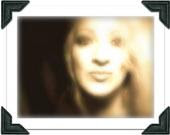Monday, June 27, 2005
The ASPCA Animal Poison Control Center offers top tips for animal safety for Independence Day.
Media Contacts: Dana Farbman, CVT
(217) 337-9751
napcc@aspca.org
FOR IMMEDIATE RELEASE:
(Urbana, IL) June 27, 2005 -- For many people, celebrating Independence Day involves getting together with family and friends, festive cookouts, and watching fireworks. Nothing beats lounging in the backyard with your favorite people and your family pets, playing fetch with your dog and BBQing on the grill. While it may seem like a good idea to feed the family pet scraps of meat from the grill and have Rover watch the fireworks with the family, in reality, some of the foods and products commonly used during this time can be potentially hazardous to our pets. The ASPCA Animal Poison Control Center is offering pet owners some helpful hints to keep their pets healthy and safe during the observance of Independence Day.
Did you know:
Alcoholic beverages have the potential to poison pets. If ingested, the animal could become very intoxicated and weak, severely depressed or could go into a coma. Death from respiratory failure is also a possibility in severe cases. Never leave drinks unattended where pets can reach them.
Do not apply sunscreen to pets or insect repellent products not labeled specifically for animals. Ingestion of sunscreen products can result in gastrointestinal upset (drooling, vomiting, diarrhea), excessive thirst and lethargy. The misuse of insect repellent products containing DEET on pets can result in the development of neurologic problems.
Always keep matches and lighter fluid out of the reach of pets. Certain forms of matches contain chlorates, which could potentially cause damage to blood cells and result in difficulty breathing, or even kidney damage in severe cases. Lighter fluid can be irritating to skin, and if ingested can produce gastrointestinal irritation, central nervous system depression and if inhaled, aspiration pneumonia and breathing problems could develop.
Never use fireworks around pets, and keep them stored in an area inaccessible to pets. While exposure to lit fireworks can potentially result in severe burns and/or trauma to the face and/or paws of curious pets, even unused fireworks can pose a danger- many types contain potentially toxic substances such as potassium nitrate, copper, chlorates, arsenic and other heavy metals.
Keep your pet on his/her normal diet. Any change of diet, even for one meal, may give your dog or cat severe indigestion and diarrhea. This is particularly true for older animals that have more delicate digestive systems and nutritional requirements. Foods such as onions, chocolate, coffee, avocado, grapes/raisins, salt and yeast dough can all be potentially toxic to pets.
Do not put glow jewelry on your pets, or allow them to play with it. While the luminescent substance contained in these products is not highly toxic, excessive drooling and gastrointestinal irritation could still result from ingestions, and an intestinal blockage could occur from swallowing large pieces of the plastic container.
Keep citronella candles, insect coils and oil products out of the reach of pets. Ingestions can produce stomach irritation and possibly even central nervous system depression, and if inhaled, the oils could potentially cause aspiration pneumonia as well.
If you suspect your pet may have become exposed to a potentially toxic product or substance, contact your local veterinarian or the ASPCA Animal Poison Control Center (1-888-426-4435) immediately for assistance.
For additional tips on poison-proofing your home, visit the “Make Your Pet’s Home Poison Safe” interactive feature at www.aspca.org/apcc.
7/12/2005
Is Your Pet Safe in Your Own Backyard?
Subscribe to:
Post Comments (Atom)







No comments:
Post a Comment